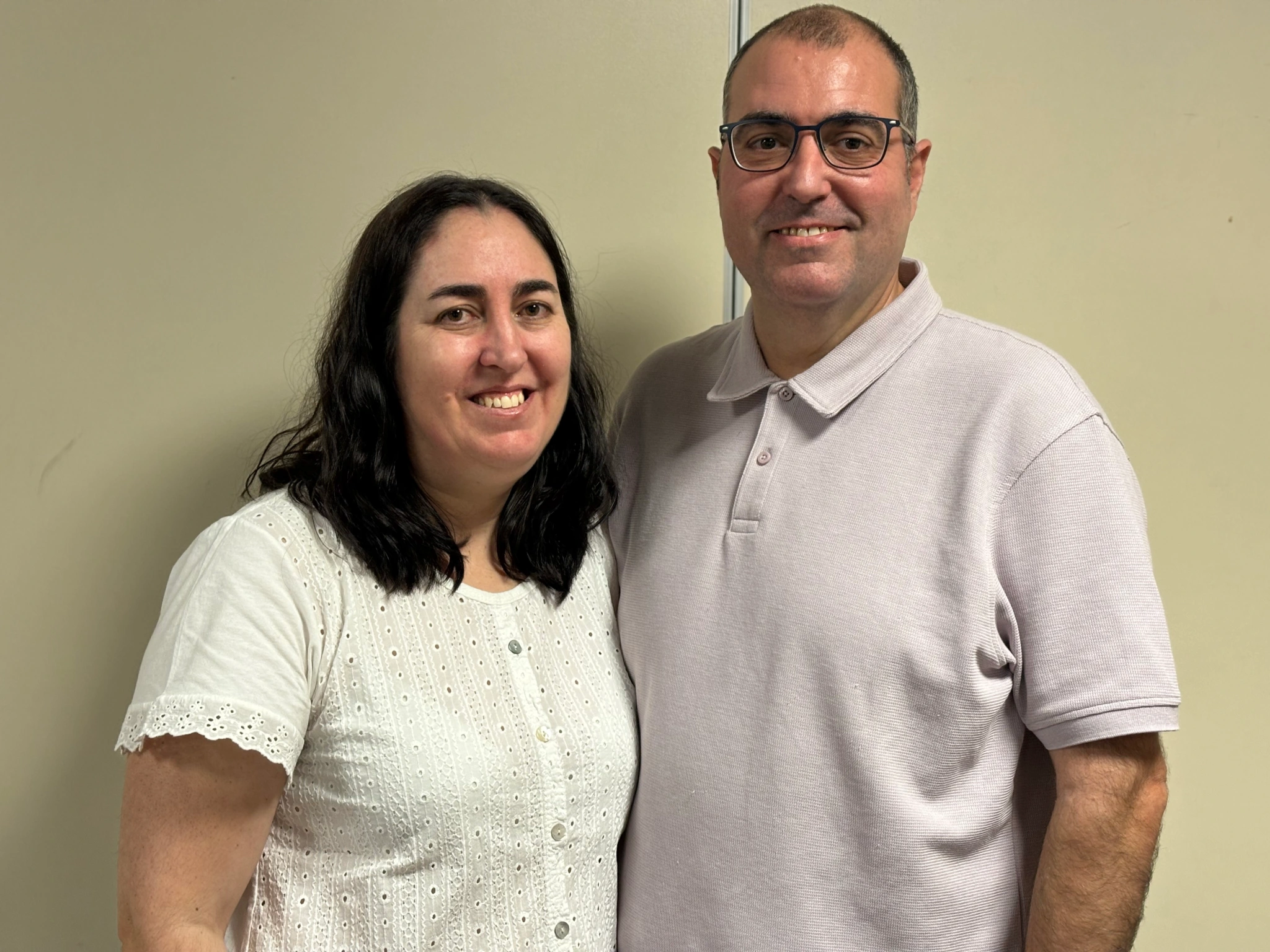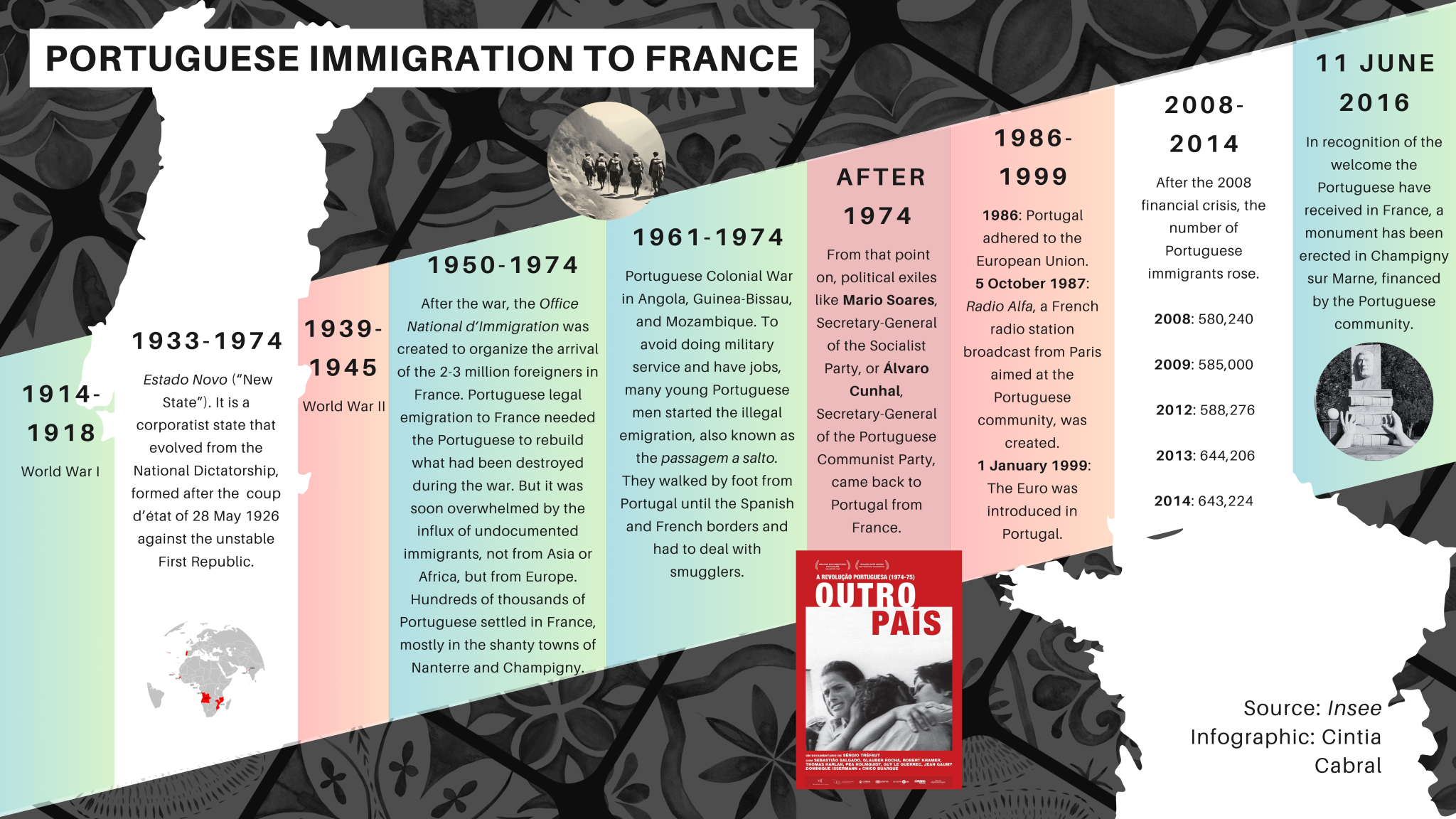Among the hundreds of Portuguese folkloric dance associations in the Paris region, there is the Jeunesse Portugaise de Paris (JPP). Created nearly three decades ago, JPP brings together young and old to promote the culture of a country that is dear to them, despite distance and borders.
On this Saturday night, just a hop, skip, and a jump away from the Eiffel Tower, young and old dance and sing in Portuguese. On one side of the room, the choir follows the concertina’s tone. On the other, the tempo of the music is given by the applause from the audience and the sounds of the heels of the dancers who spin like spinning tops.
Whether you are part of the dance group or not, you will be expected to join the regadinho in the middle of the performance, a circle of people going round and round, creating a link between the audience and the artists. At the end of the rehearsal, everyone shares Portuguese dishes. The youngest in the group is 4 and the oldest is 76. Despite the age gap, they share a common goal: to preserve the traditions and costumes of a place that is dear to them.
While Bruno Branco, the president of the Portuguese Youth of Paris, plays the concertina, his wife, Paula Gonçalves, gives instructions to the dancers as they rehearse. The couple met in 2007 at a folkloric dance group, in Castelo do Neiva, a city in northern Portugal whose population tends to emigrate. In 2012, due to the economic crisis, the family decided to move to France to build a better life for themselves and their children.

But the saudade (i.e. a Portuguese word that describes an ardent desire or longing, especially a feeling of loss or grief for something lost) has pushed the family not to put their folkloric dance passion aside. In 2015, Bruno Branco and his family joined the Jeunesse portugaise de Paris (Portuguese Youth of Paris). Since 2021, Branco has led the NGO which teaches Luso descendants and lovers of Portuguese culture to dance and play instruments for festivals and shows. For Branco, folklore is about “passing on what you know,” a passion he has carried since he was 13. “There are many folkloric dance groups in Paris, but this one was the one that touched me the most,” he said.
Today, JPP is a folkloric dance group of 40 people who dance and sing to carry the Portuguese cultural legacy beyond borders. At JPP, dancers are not allowed to wear makeup or watches in order to better represent folkloric dances. For the couple, dancers and choreographers should make a great balance between sticking to tradition and introducing new ideas, without “destroying the past and history of the group.”
Portugal, A Country Of Emigration
On 17 November 1995, a group of Portuguese friends who regularly attended the François Xavier Church of the 7th arrondissement found a way to gather and relive Portugal’s traditions in France. The group of friends created the Jeunesse portugaise de Paris 7. But today, the rehearsals are made in the 15th arrondissement, and dances performed all over the Parisian region.
According to the University of Lisbon anthropologist Clara Saraiva, “Portugal has always been a country of emigration, especially since the 1960s, when Central and Northern Europe needed more labor from poorer and southern European countries that wanted to export labor.” Saraiva says those immigrantsoften came from rural areas where industry was underdeveloped, but still found ways to recreate their culture of origin in the countries they migrated to.

However, the financial crisis wasn’t the only driving force for the rise of Portuguese immigration in the middle of the 20th century. “Unlike other European countries, Portugal didn’t give independence to its colonies, and instead started a colonial war (1961-1974),” Saraiva said. This led to the illegal Portuguese emigration to France of young men who did not want to take part in the colonial war nor live under the dictatorship of António de Oliveira Salazar, a regime that ended with the 25 April 1974 Carnation Revolution.
According to Insee, Portugal was the third most common country of birth for immigrants (8.2%) in France in 2022. The Portuguese Emigration Observatoryestimated that Portugal has the highest emigration rate in Europe, and 30% of young people between the ages of 18 and 39 who were born in the country have left due to low salaries and lack of opportunities.
Living Between Two Worlds
25-year-old Cátia Pereira, Branco’s daughter and dancer at JPP, said, “When people ask me ‘Would you like to go back to Portugal?’ I say ‘No’ because I have lived here all my life. But that doesn’t mean I don’t like Portugal, either. I wouldn’t mind living there, but maybe if I have the same living conditions as I have here.” For Pereira, folkloric dances bring memories of the past. “I’ve always done folkloric dance since I was five, and there have always been new things to see and learn. I decided to stay in this group and not go into another because I have my parents here, and I ended up creating a second family.”
João Duarte Mendes, 19, emigrated from Braga to Paris in 2017 with his family. He explained that not everyone understood why a man like him would want to dance. If most of Pereira’s friends “like” to see her do folkloric dance “because it’s different,” Mendes’s friends have divergent opinions. According to the dancer, while “Some react well,” others “joke or laugh about it.”
JPP also works to strengthen ties between Portugal and France. On 14 October 2023, Norbert Santin and Paulo Torres signed the twinning of Saint-Germain-lès-Arpajon and Castelo do Neiva. “Portugal has always been a close friend of France. It is a country with which we have never been at war, and a great nation of traveling sailors,” said Norbert Santin, Mayor of Saint-Germain-lès-Arpajon. Branco proudly recalled being the one who suggested Castelo do Neiva, his hometown, to the French mayor.







